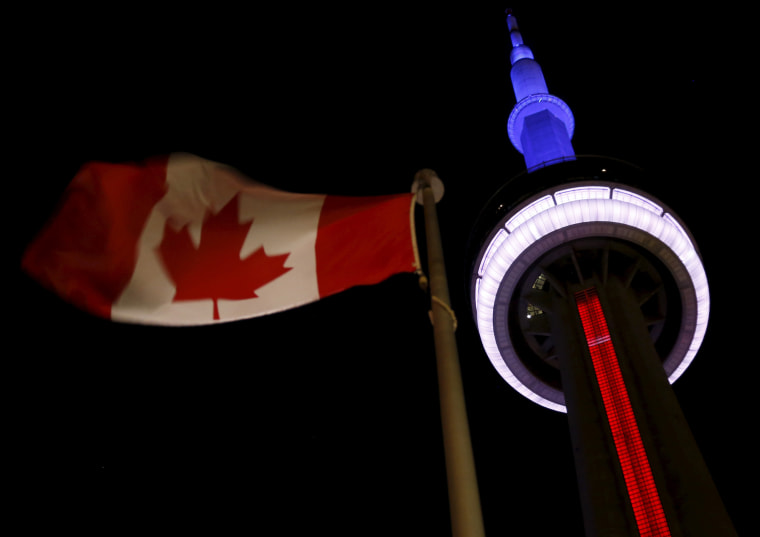It's hard to pick the lowest single point in Wisconsin Gov. Scott Walker's (R) failed presidential campaign, but the time the Republican considered a wall along the Canadian border has to be among the most amazing.
On "Meet the Press," Chuck Todd asked Walker, "Do you want to build a wall north of the border, too?" The GOP governor
replied it's "a legitimate issue for us to look at."
Six months later, Walker is no longer a candidate, but the
Wall Street Journal reports that his former rivals are still thinking about our neighbors to the north. This article ran over the weekend:
In the waning days of Iowa's first-in-the-nation Republican presidential nominating contest, suddenly Canada is a central role. This week both Sen. Marco Rubio (R., Fla.) and retired neurosurgeon Ben Carson have made the case that the U.S. faces national security risks along its northern border—reminiscent of former candidate Scott Walker's brief period of entertaining the idea of walling parts of the Canadian border to restrict immigration.
At one campaign event, Rubio heard from a voter who said, "Once the wall is placed down in Mexico, you and I know terrorists will try to come through Canada. What's going to be done about that?"
The Journal reported that Rubio not only took the question seriously, he also committed to thousands of additional federal agents along the Canadian border. "The threat to the Canadian border is real as well," the senator told the voter. "We need an additional 20,000 border agents. Not just on the southern border, but to partner with the Canadians on the northern border."
Around the same time, Ben Carson said Canada's decision to welcome refugees fleeing Syria's civil war represents a threat to U.S. national security.
The good news is, neither Rubio nor Carson endorsed the idea of a Canadian border wall. The bad news is, their rhetoric about Canada is nevertheless a bit much.
I realize, of course, that in far-right politics, the focus on the U.S./Mexico border is a hot-button campaign issue, but this occasional shift to the U.S./Canadian border is misplaced. TPM's Josh Marshall
argued the other day in response, "One must almost become a full-fledged archaeologist of derp to dig through the many levels of evidence-less assumptions upon which these fears are based."
The assumption is that ISIS, al Qaeda or just "the terrorists" more generally are routinely infiltrating terrorists into the United States to mount terror operations. We need to secure the Southern border against terrorist infiltration. And having cut off that entry way they will focus instead on the northern border. This is quite simply an entire edifice of bulls***. [...] [T]o the best of my knowledge, contrary to the idea that unsecured borders are a path for jihadist infiltration, since 9/11 there has not been a single documented case of terrorists coming into the US via either the northern or southern border.... Homegrown terror plots are in many cases quite literally homegrown, people who were born here. In almost every other case, they are people here legally. And in the very few cases where they are "illegal" it is almost always a case of overstaying a legitimate visa. So basically, terrorist infiltration over our borders is simply not a thing. At all. And yet it is a core part of the Republican policy conversation.
For the record, in the years that followed 9/11, there was a myth -- which Canadian officials fought hard to knock down -- that 9/11 terrorists entered the United States through Canada.
Those claims were demonstrably wrong, though it appears the broader fears haven't gone away.
